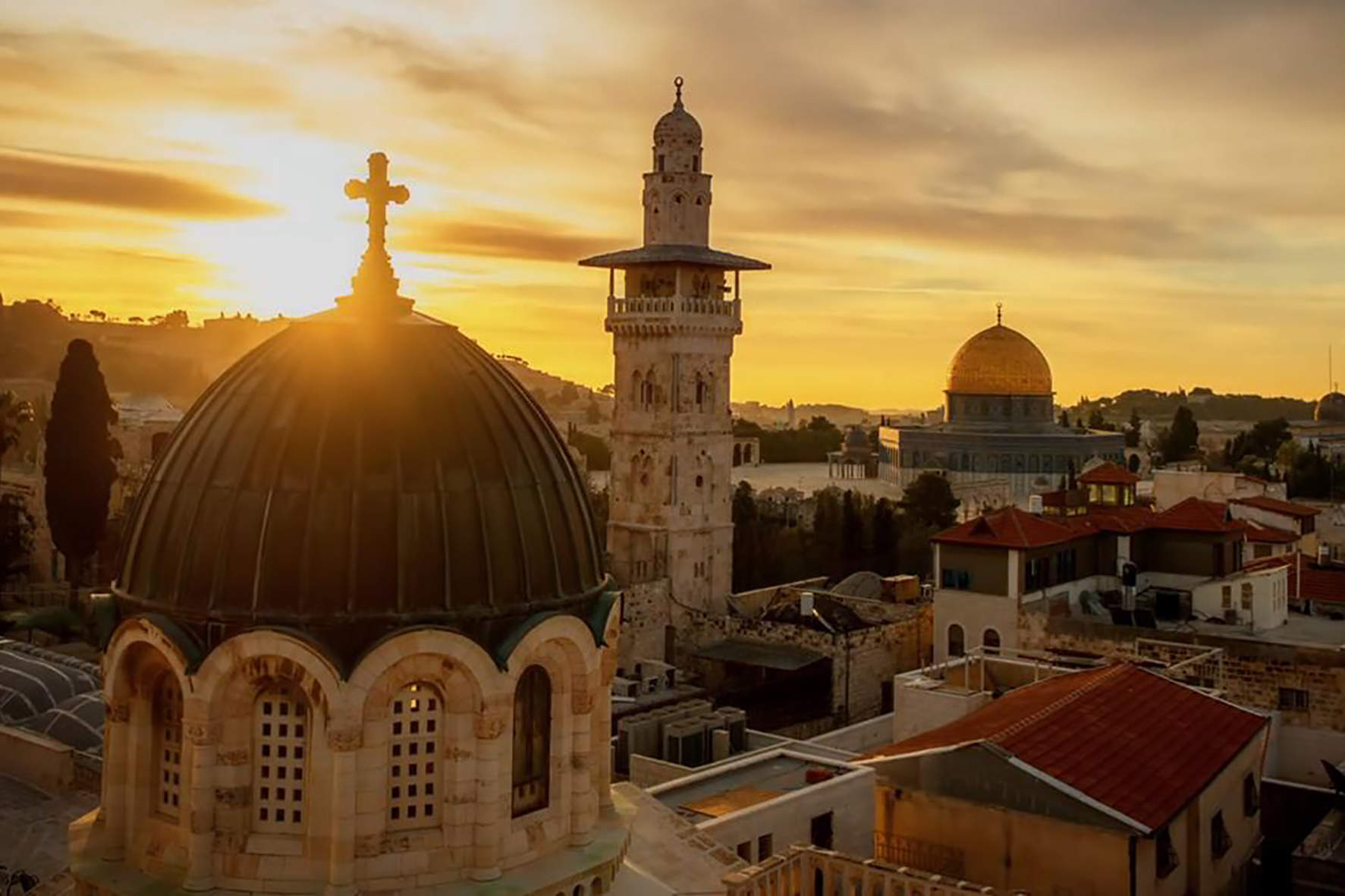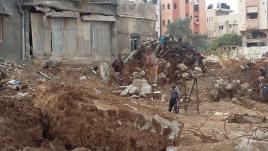Solidarity
“Reducing the sense of isolation of the Christian Palestinian community; encouraging charity towards parish communities to reduce extreme poverty; contributing to economic development through small development projects.” These are the three goals of the twinning program promoted by Caritas Italy in cooperation with Caritas Jerusalem called: “Palestine, twinning and pilgrimages”

“Reducing the sense of isolation of the Palestinian Christian community; encouraging charity in parish communities to reduce extreme poverty; contributing to economic development through small development programs”. These are the three goals of the twinning program promoted by Caritas Italy in cooperation with Caritas Jerusalem called: “Palestine: twinning and pilgrimages” presented in Rome a few days ago during a meeting to discuss the situation in Syria and in the Holy land, attended by several diocesan Caritas.
A solidarity-based answer. For Danilo Feliciangeli, coordinator of the program and of Caritas Italy projects in the Middle East,
“a solidarity-based answer is a necessary solution at a time when peace is deadlocked, when social and economic conditions only seem to get worse.”
The Israeli separation barrier further worsens this situation, impacting the daily life of 4.81 million Palestinians, an eloquent sign of the Israeli military occupation ongoing for the past 50 years (1967-2017).
 It’s the worst humanitarian crisis in the history of the United Nations, Humanitarian Aid and Development Activities coordinator Robert Piper declared past June 6 : “Living under foreign military rule for years on end, generates despair, suffocates initiative and leaves generations in a kind of political and economic limbo”, he said. Figures leave no room for imagination. According to the last report of the United Nations Office for the Coordination of Humanitarian Affairs, “44% of the overall Palestinian population, with more than 50% under 18, are officially considered refugees, under the protection of the United Nations, and thus in need of humanitarian assistance. In September 2017 unemployment was at 26.9%. Access to primary resources, such as water, land and electricity, are deeply affected by the Israeli occupation and over 90% of the land has no irrigation. According to UNCTAD (United Nations Conference on Trade and Development), Israel continues to expand settlements in violation of Security Council Resolution 2334 of 23 December 2016.
It’s the worst humanitarian crisis in the history of the United Nations, Humanitarian Aid and Development Activities coordinator Robert Piper declared past June 6 : “Living under foreign military rule for years on end, generates despair, suffocates initiative and leaves generations in a kind of political and economic limbo”, he said. Figures leave no room for imagination. According to the last report of the United Nations Office for the Coordination of Humanitarian Affairs, “44% of the overall Palestinian population, with more than 50% under 18, are officially considered refugees, under the protection of the United Nations, and thus in need of humanitarian assistance. In September 2017 unemployment was at 26.9%. Access to primary resources, such as water, land and electricity, are deeply affected by the Israeli occupation and over 90% of the land has no irrigation. According to UNCTAD (United Nations Conference on Trade and Development), Israel continues to expand settlements in violation of Security Council Resolution 2334 of 23 December 2016.
The living conditions of the population in Gaza, about two million, are dramatic: 56% between the ages of 15 and 29 are unemployed; 35% of arable land and 85% of fishing waters are not accessible to local producers. More than half the population are subject to food insecurity and 80% receive food in the form of aids or social contributions.
The expansion of Israeli settlements are a major obstacle to Palestinian economic development and to the viability of the two-state solution, despite the many UN Resolutions demanding they be ceased (the latest is n.2334) – UNCTAD writes -. The building of homes in 2016 grew by 40% compared to the previous year.
The settler population has more than doubled since the Oslo Accords in 1993 and 1995, and currently stands at between 600,000 and 750,000, while Palestinian structures were demolished: 1.094 in 2016, twice as many compared to 2015. This included the destruction of donor-funded structures, (support from donors fell by 38% in the period 2014-2016).
Overcoming the frustration. “Our goal–said Feliciangeli – is to help all 15 Palestinian parishes overcome this feeling of frustration by pursuing three goals of the project that we plan will become fully operational by 2018.”
Some Italian dioceses, including Reggio Calabria, Foligno, Piacenza, Concordia-Pordenone, Novara and Verona made a preliminary on-site visit to the Holy Land past May to meet the parishes they intend to  support and identify activities leading up to the achievement of the established goals. “For this purpose – added the coordinator –
support and identify activities leading up to the achievement of the established goals. “For this purpose – added the coordinator –
We focus on the “development of pastoral relations between sister Churches”
“thanks to solidarity pilgrimages (visit to parish communities and sharing of initiatives), volunteering camps, exchange of voluntary experts, study visits in Italy, exchange of priests and seminarians, civil service. The program enjoys the technical cooperation between Italian diocesan Caritas and Caritas Jerusalem, that will jointly seek to create parish Caritas centres. In this regard we aim to develop small projects at parish level with a maximum budget of 5.000 €, capable of generating employment and income. The projects will be sustainable ones, namely, they are designed to continue independently without the need of external financial support.”
Those diocesan Caritas that will not develop veritable twinning can still contribute to the program by organizing “solidarity pilgrimages” that advance relations and exchanges with Palestinian Catholic communities, with local traditions and with new historical and cultural sites.
Diocesan Caritas centres that wish to organize a “solidarity pilgrimage” to the Holy Land can contact the “Middle East” Office of Caritas Italy, which, in conjunction with Caritas Jerusalem and the Holy Land Association, with provide technical support for the definition of the itinerary and the organization of the solidarity meetings.